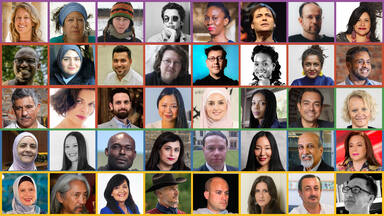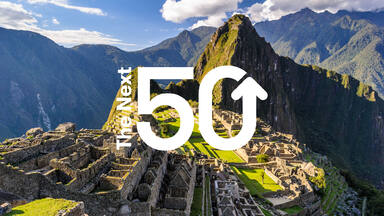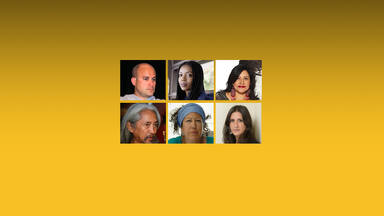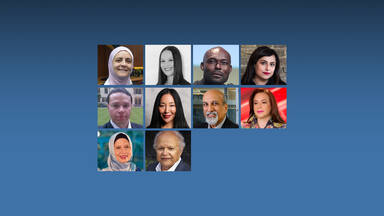Nicolas Nova
Researcher, writer, design researcher and anthropologist of technology
Habiba Djahnine
Writer and filmmaker whose body of work consists of cinema dedicated to accurate portrayal of Algerian realities
Vision for the Next 50
In the Next 50… Technologies enable us to tell our own stories, express emotions and share cultural values. With the help of technology, we are able to observe details rooted in diverse cultures and heritage, getting past the facade of a person or country.
In the Next 50… Women actively employ documentary films to show and participate in their heritage promotion, as well as to preserve, reappropriate and reconstruct values of heritage that are at risk of disappearing.
Summary
Nicolas Nova and Habiba Djahnine discussed the role of new media and technologies in a balanced representation of culture. They agreed that technologies, including films and documentaries, can raise recognition of culture and heritage of the underrepresented region, faced with a glut of international culture.
Nicolas underlined the importance of paying attention to various aspects of identity, culture and heritage that are hidden behind the facade. As an anthropologist observing technology’s influence on humanity, he talked about designing technologies to connect people and preserve heritage against dominant international culture. Habiba stressed that documentary films give women the opportunity to promote their heritage, demonstrate their values and protect their culture from colonialism and the dominance of certain media. We must create a new path towards reappropriating heritage by supporting and training women and young professionals in cinematography who aspire to capture true narratives of the ‘overlooked region’.
Dialogue
Watch the dialogue
Explore other sessions
Five dialogue sessions covering five themes take place in 2022, each joined by thinkers in paired dialogue from diverse regions. The interdisciplinary dialogues inspire new visions for the next 50 years of World Heritage.




